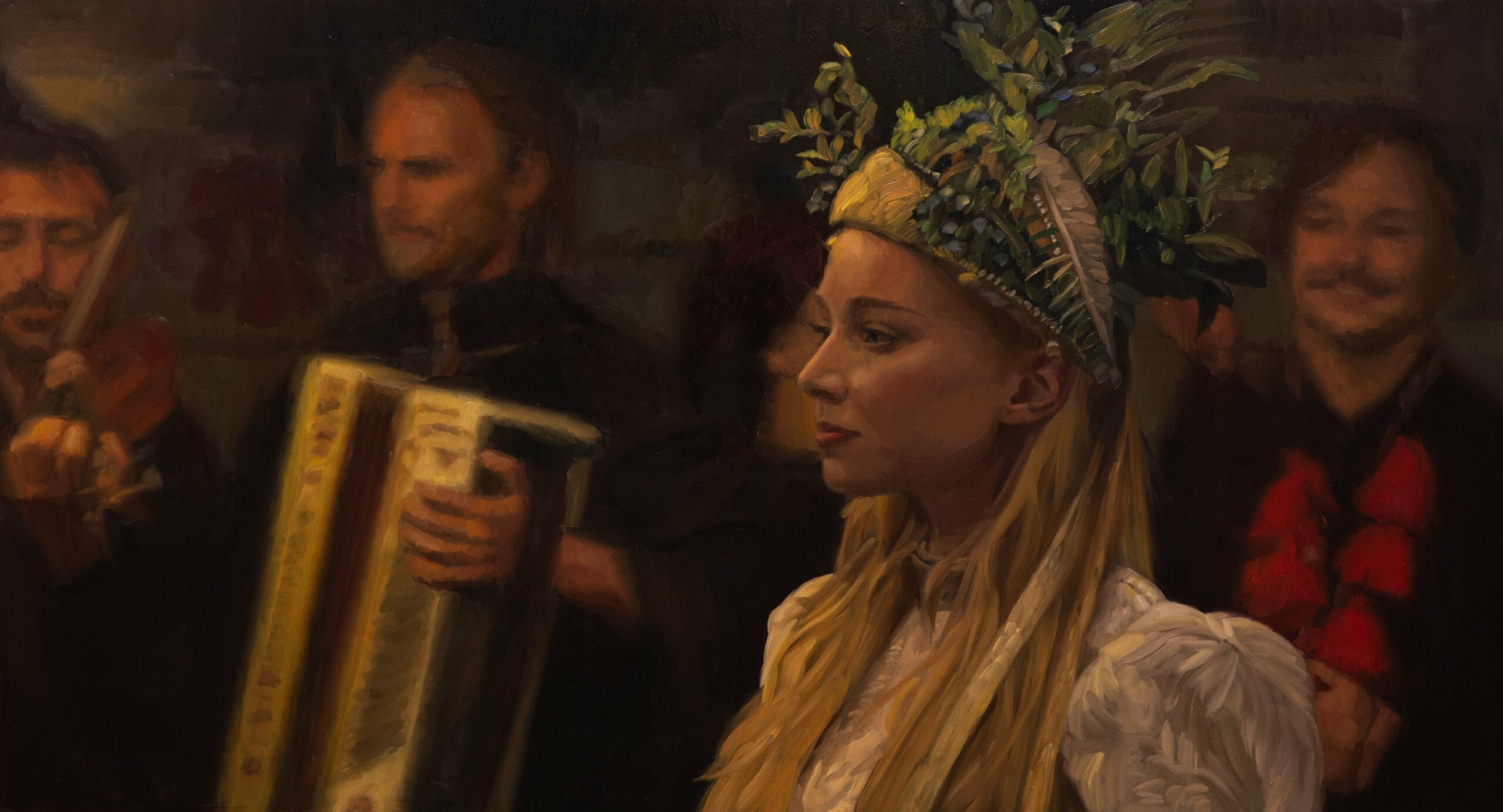Of the Polish Nobel Prize winners for literature, the two recent ones are the most famous: Wisława Szymborska (1996) and Olga Tokarczuk (2019). However, it is worth recalling that exactly 100 years ago, in 1924, the prize was awarded to Władysław Reymont, for his four-volume novel Chłopi (The Peasants), describing the fate of the inhabitants of a Polish village at the end of the 19th century. Reymont won the Nobel Prize race against Tomas Mann, Bernard Shaw, and Tomas Hardy. Last year an unusual film was made under the same title, based on the novel, and it will soon be screened at this year’s Kaboom Animation Festival.
The Nobel Committee praised the novel for its coherent and insightful description of peasant life, customs, their material and spiritual culture. The division into four volumes, each entitled with the name of a different season, emphasises the inseparable relationship of the characters with the rhythm of nature, but the dramas and emotions they experience are universal. The setting of the action in a small Mazovian village gives an excuse to show its specificity, but a similar story, about a hermetic community, about a beautiful, troubled girl and her forbidden love for her own stepson, about a forced marriage and its consequences, could just as well have happened in another place.
Or in another time, as there are virtually no references to historical events in Reymont’s novel to help place it precisely in the timeline. Nor is there any ideology, social criticism, or advocacy of any world view, yet the novel has always attracted the approval of 20th century left-wing circles, if only because of the choice of the peasantry as a collective protagonist.
The Peasants is an excellent piece of literature, so it is not surprising that contemporary artists have reached for it. All the more so because today’s readers find there some critique of patriarchy and a rejection of apparent justice administered on the basis of collective anger.
In 2023, a film was made, admittedly with actors, but in post-production each frame was brush stroked with paint, creating the effect of an animated film. The same filmmakers, Dorota Kobiela and Hugh Welchman, used a similar technique in Loving Vincent (2017), earning an Oscar nomination for Best Animated Feature Film, and their film Peasants was also a strong contender for a nomination last year.
The filmmakers were strongly inspired by Polish genre paintings from the turn of the 19th and 20th century (Józef Chełmoński, Ferdynand Ruszczyc, Leon Wyczółkowski). This is a film that is poignant not only visually, but also musically. The soundtrack was written by a young artist, Łukasz L.U.C. Rostkowski, an award-winning composer, music producer, author of multimedia shows, television programmes and film projects , while the performance was entrusted to the Rebel Babel Film Orchestra , founded by Rostkowski in 2015. The orchestra is known for its unconventional musical solutions, crossing boundaries, and combining multiple genres. Their collaboration resulted in an unusual anthology of Slavic folk music, drawing on motifs from not only Polish, but also Serbian, Belarusian, Ukrainian, Lithuanian, or Bulgarian pieces. The recording gathered musicians deeply involved in the study of Polish folk music who used traditional instruments but applied contemporary-sounding arrangements. This is more than music; it is a journey through culture, history, and unbounded creativity, assure the filmmakers.
The film will be shown as part of the Kaboom Animation Festival, with a life concert by the Rebel Babel Film Orchestra on Friday 12 April, at 9.30pm. After the Festival, the film will be also shown in Dutch cinemas, from 18th April.
Monika Gimblett



